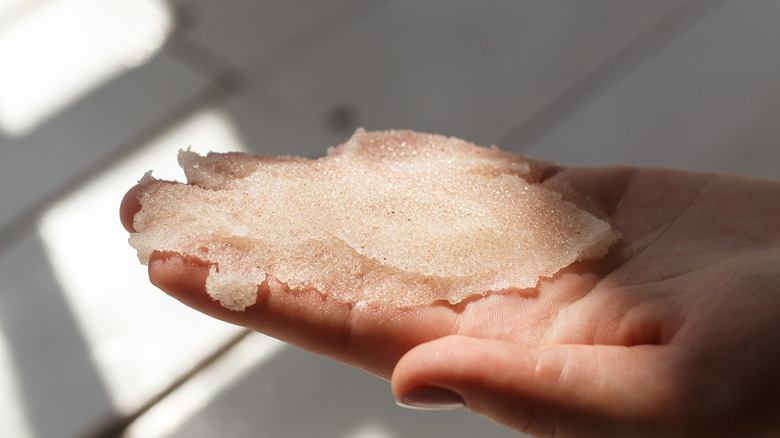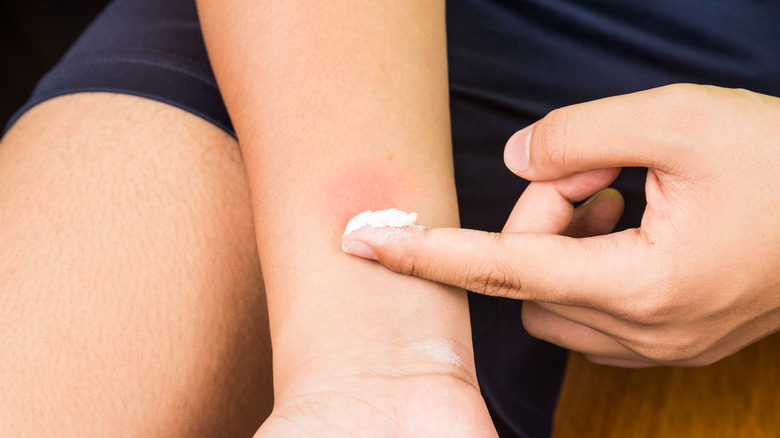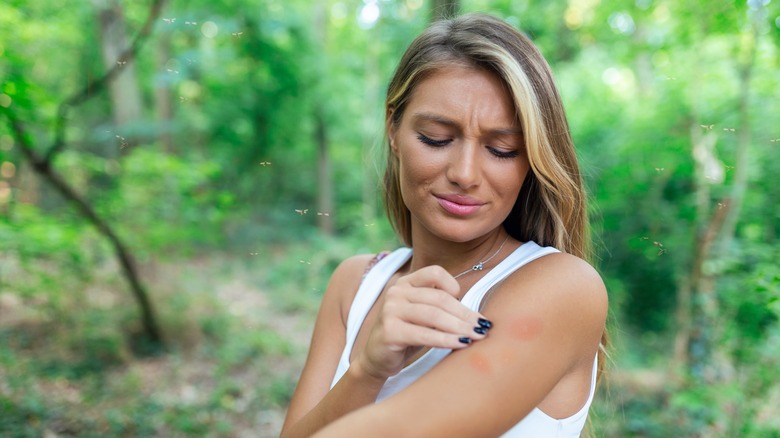Packing Tips And Hacks
Kylie McCreary
Hiking in nature is the perfect way to relax. However, once you get a bug bite, your feelings of peace can quickly turn to irritation and pain. If you’re trekking through a more woodsy environment, you’re especially at risk of being attacked by pesky insects. A mosquito, ant, or other insect decides you look like a tasty snack and bam! You’re left itching and uncomfortable for the rest of your day, if not a week.
When we’re in a pinch, many of us will instead look for a simple, homemade remedy online to treat our ailments, rather than heading out to the pharmacy. If you are doing so for a bug bite and come across the sugar paste hack, there is some important context you should know about the solution before rubbing it on your bite. It won’t by any means do you harm, but there are some reasons why it likely won’t lead to the exact results you’re looking for.
Why sugar-paste is used in medicine

Sergey Zaykov/ Shutterstock
Sugar is considered hygroscopic, meaning it absorbs moisture and reduces water content. Because of this, many consider sugar an effective treatment for open wounds. While disease-causing bacteria need moisture in order to survive, the sugar paste prevents further infection by drying up the wound location. For these reasons, sugar is used in developing countries where it can serve as a low-cost treatment option for open wounds.
When antibacterial ointment is unavailable, medics in countries such as Zimbabwe, Botswana, and Lesotho will pour sugar over the affected area and seal it with a bandage. In some rare cases, bug bites may be susceptible to infection and can benefit from an antibacterial treatment like this. But most often, bug bites will create microscopic breaks in the surface of the skin. If the break does not cause any bleeding, it can usually go without an antibacterial. Typically, the primary issues of bug bites you’re dealing with will not be healed by applying sugar.
Alternative home remedies for bug bites

Thamkc/ Getty Images
Your body’s immune defense against foreign substances will release chemicals that work to fend off the bug’s saliva from bug bites. One of these chemicals is known as histamine. Histamine is the culprit that causes the annoying common symptoms of insect bites we’re all familiar with, like swelling, itching, and stinging. While these aren’t necessarily life-threatening problems, they are absolutely aggravating and uncomfortable sensations to deal with.
If you want a home remedy to combat this discomfort, the key is to target your irritation, not the bacteria. We recommend you pack baking soda in your DIY emergency first-aid kit. By mixing baking soda powder with equal parts water, you can create a paste that can help with soothing that pestering itchy sensation. If you’re looking to reduce swelling or stinging pain, simply applying some old-fashioned ice will usually do the trick. Above all, you’re smartest option is to avoid bug bites altogether by applying a pharmaceutical or natural insect repellent before venturing into the outdoors.

